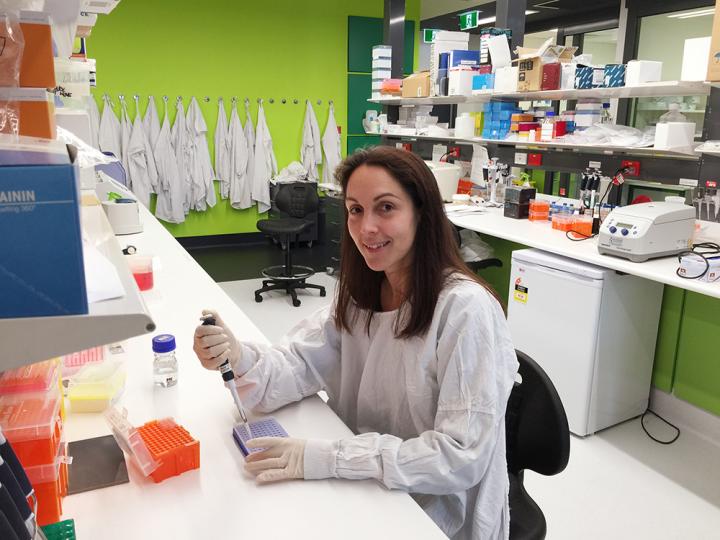
Credit: Marian Burr
A cluster of interacting proteins that are active in both human cancers and Tasmanian devil facial tumours, may give clues to how cancers evade the immune system, according to a study part-funded by Cancer Research UK and published in Cancer Cell today (Thursday)*.
This early work in cells could one day guide us towards new drug combinations that improve the effectiveness of immunotherapy treatments.
Researchers at the Peter MacCallum Cancer Centre and University of Melbourne, Australia, in collaboration with scientists in the UK, investigated the reasons why some cancer cells lose proteins from their surface, allowing them to hide from the immune system.
They found that when a protein complex called PRC2, is over active, cancer cells lose the ability to present a protein called MHC class I. Expression of MHC class I is essential for tumours to be recognised by the body’s immune defences.** Interestingly, it appears that loss of MHC class I in Tasmanian devil tumour cells may be due to the same process.
Dr Marian Burr, lead author of the study said: “We think this could contribute to some cancers in people becoming resistant to immunotherapies, and why cancer cells are not destroyed when transmitted between Tasmanian devils.”
Devil facial tumour (DFT) is a common type of cancer in Tasmanian devils that is almost always lethal. Unlike any cancer in people, this unique disease is contagious and can be transmitted between individuals when the devils bite each other’s faces, either as part of their mating ritual or to protect their territory.***
While humans cannot pass cancer to other people, the researchers suggest this newly observed similarity in the way cancer cells evade the immune system may explain why some cancers respond less well to immunotherapy than others.
The research team have suggested that a class of drug called EZH2 inhibitors, which are already in clinical trials for lymphoma and other cancers, could be an effective treatment for overcoming immune evasion.
When they blocked the activity of EZH2 in cells in the lab, MHC class I molecules were restored on the cell surface, allowing the cancer cells to be targeted by the immune system once more.****
“EZH2 inhibitors are showing promising results in clinical trials,” added Prof Mark Dawson, from the Peter MacCallum Cancer Centre, who is senior author on the study. “So we want to investigate whether they can be combined with immunotherapy treatments, and if they could help patients who don’t respond to immunotherapies alone. This approach may be particularly beneficial for cancers such as small cell lung cancer that have low expression of MHC class I.”
Dr Rachel Shaw from Cancer Research UK said: “It’s interesting to see how our understanding of cancers in other species might help us tackle some of the biggest problems in human cancer research.
“Immunotherapy treatments have shown great promise for certain patients, but some people will become resistant – and for others, these types of treatment don’t work at all. Understanding why is a crucial step towards improving how we use the immune system to treat cancer.
“We hope this early research will lead to clinical trials testing more effective forms of immunotherapy, which could help more people survive cancer in the future.”
###
Media Contact
Daimona Kounde
[email protected]
Related Journal Article
http://dx.




